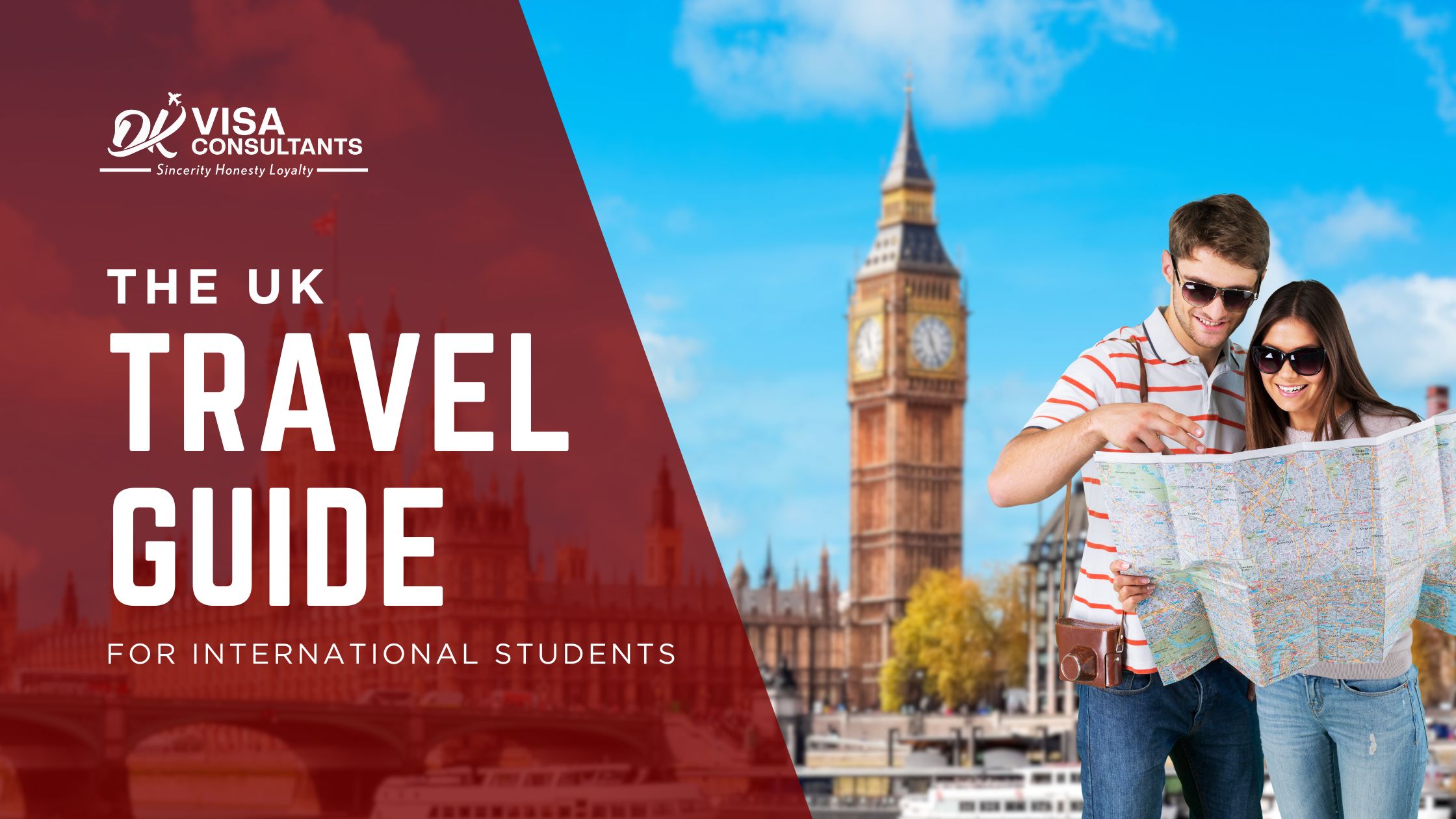The United Kingdom is not only a world-renowned destination for academic excellence but also a treasure trove of travel opportunities. From historical landmarks and cultural festivals to breath-taking countryside and modern cities, the UK offers an immersive experience beyond lecture halls and libraries. For international students, exploring the UK provides valuable exposure to regional cultures, historical contexts, and natural beauty—all while remaining cost-effective and accessible.
This comprehensive travel guide outlines the best destinations, tips for getting around, and practical advice tailored for international students studying in the UK.
UK Travel Guide for students
Check out the travel guide for the International students:
1. Must-Visit Destinations Across the UK
- London
As the political, cultural, and financial capital, London offers iconic attractions such as the British Museum, Big Ben, Buckingham Palace, and the West End theatre district. Beyond its landmarks, London’s neighbourhoods—like Shoreditch, Notting Hill, and Camden—offer diverse culinary scenes and artistic flair.
- Edinburgh
The Scottish capital combines gothic architecture with rich history. Edinburgh Castle, Arthur’s Seat, and the Royal Mile are key highlights. In August, the city comes alive with the famous Edinburgh Festival Fringe—the world’s largest arts festival.
- Manchester
A hub for music, sports, and industry, Manchester is home to two major football clubs, vibrant nightlife, and museums such as the Science and Industry Museum and the Manchester Art Gallery. It’s also a gateway to the Peak District National Park.
- Oxford & Cambridge
Known for their historic universities, both cities are steeped in tradition and beauty. Punting along the River Cam or visiting the Bodleian Library offers a glimpse into centuries of academic heritage.
- Bath
A UNESCO World Heritage site known for its Roman baths and Georgian architecture. Bath also provides a tranquil escape with scenic parks and historic tea rooms.
- Lake District & Scottish Highlands
Nature lovers can explore the UK’s most stunning landscapes, from the lakes and valleys of Cumbria to the dramatic lochs and mountains of Scotland. Ideal for hiking, cycling, and weekend retreats.
2. Transportation: Getting Around the UK
- Rail Travel
The National Rail network connects all major cities and towns. Booking in advance through sites like Trainline or National Rail can yield significant discounts. For frequent travellers, a 16–25 Railcard (also available to full-time students over 26) offers 1/3 off most fares.
- Coach Services
Companies like National Express and Megabus provide low-cost intercity travel. Although slower than trains, these are budget-friendly options for long-distance travel.
Local Transport
- London: The Oyster Card or contactless payment provides access to the Tube, buses, trams, and rail services.
- Other Cities: Most offer student bus passes and integrated transport systems.
Domestic Flights
Useful for reaching remote areas such as Northern Ireland or the Scottish islands. Budget airlines such as EasyJet and Ryanair offer competitive prices for early bookings.
3. Budget Travel Tips for Students
- Accommodation: Hostels (e.g., YHA, Hostel world) and university student accommodations (during holidays) offer affordable stays.
- Student Discounts: Use a TOTUM or ISIC card for discounts on travel, entertainment, and dining.
- Free Attractions: Many UK museums and galleries, such as the National Gallery in London or Kelvingrove Art Gallery in Glasgow, offer free admission.
- Food: Supermarkets offer meal deals and budget-friendly groceries. Markets and local eateries also provide cost-effective dining options.
4. Travel Etiquette and Safety
- Respect Local Customs: Queueing is a social norm. Politeness and punctuality are appreciated.
- Weather Preparedness: The UK is known for sudden weather changes. Carrying an umbrella and wearing layered clothing is advisable.
- Travel Insurance: International students should secure travel insurance covering medical emergencies, especially when exploring rural or remote areas.
5. Weekend Getaways and Day Trips
- Brighton: A seaside town known for its pier, vibrant arts scene, and pebble beach.
- Stratford-upon-Avon: Shakespeare’s birthplace with well-preserved Tudor architecture.
- York: A historic city with medieval walls, a grand cathedral, and Viking heritage.
- Windsor: Home to Windsor Castle and quaint riverside walks.
Conclusion
Exploring the UK is an enriching complement to academic life, offering international students a deeper understanding of British culture, history, and diversity. Whether it’s hiking in the Highlands, attending a West End play, or discovering hidden gems in local markets, the UK provides endless opportunities for discovery. With smart planning, discounted travel, and a sense of curiosity, every weekend can become a new adventure.
For personalized assistance in planning studies or travel in the UK, DK Visa Consultant offers expert visa and education guidance tailored to international student needs.
FAQ
Q1: Is it safe for international students to travel around the UK alone?
Yes. The UK is generally safe for travellers. Students should follow standard safety precautions, avoid poorly lit areas at night, and inform friends or flatmates when traveling solo.
Q2: Are there travel discounts for students in the UK?
Ans: Yes. Students can apply for a 16–25 Railcard, coach passes, and use student discount cards like TOTUM and ISIC for savings on travel and entertainment.
Q3: What is the best way to travel on a student budget?
Ans: Coaches are the most budget-friendly for long-distance travel. Booking trains early, traveling off-peak, and staying in hostels also help reduce expenses.
Q4: Can students travel to Europe while studying in the UK?
Ans: Yes, but a separate Schengen visa is required for most European countries. Short trips during holidays are common and encouraged for cultural enrichment.
Q5: What are some hidden travel gems in the UK?
Ans: Some lesser-known yet beautiful destinations include the Cotswolds, Snowdonia National Park in Wales, Isle of Skye in Scotland, and St Ives in Cornwall.

